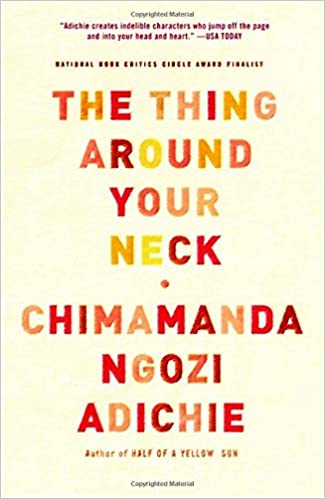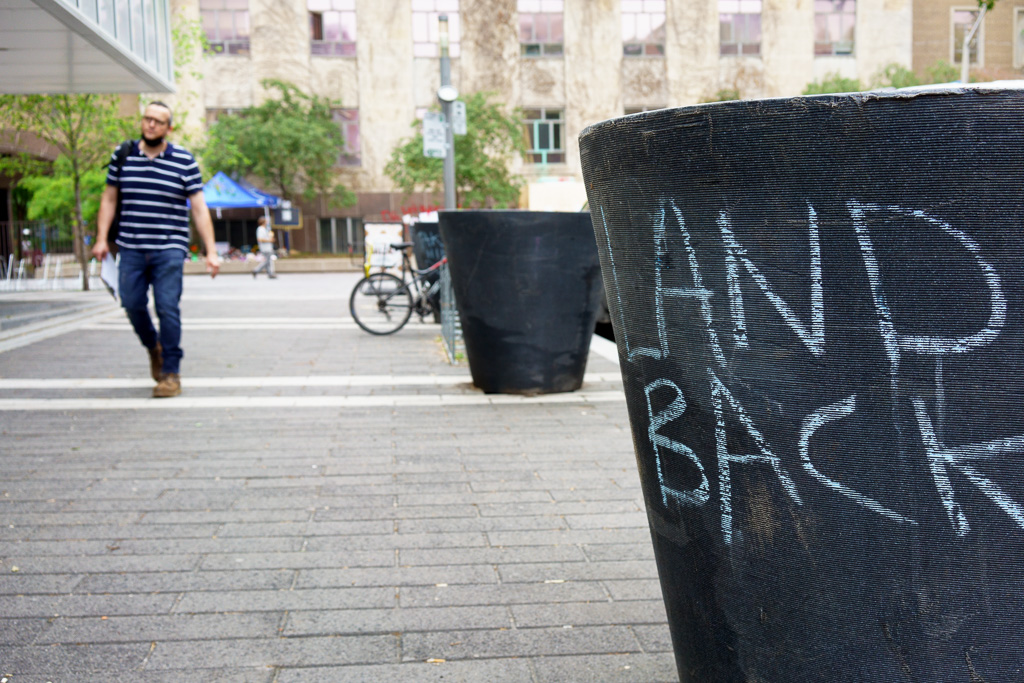By an odd coincidence, I was reading The Thing Around Your Neck, a collection of short stories by Chimamanda Ngozi Adichie, when reports came in about the discovery of hundreds of unmarked graves on the grounds of the former Marieval Indian Residential School in Saskatchewan. What possible connection can there be, you may ask, between the writings of an America-based Nigerian feminist and the discovery of children’s graves in the Canadian prairies? The connection didn’t strike me until the evening, as I was settling in to read the final short story, “The Headstrong Historian.” All through the day, social media had been simmering with outrage but the pot had never boiled over until Adichie set to work on my complacency with her searing account.
“The Headstrong Historian” is not like her other stories. For one thing, it spans generations, it straddles the histories of entire peoples. Although a mere 20 pages, it is sprawling, as wide as the sky. The other 11 stories in the collection are strict in their adherence to the traditional unities of space and time, they are situational, concerned with brief interactions. For example, in what I regard as the best of these—”Jumping Monkey Hill”—a woman attends a workshop for young African writers led by an older man who can’t keep from leering at her. If you’ve ever wondered what the term “gaslighting” means, Adichie offers a clinic here. During the workshop, the woman writes and shares a short story about the effects on a woman of an older man who can’t keep from leering at her. The workshop leader dismisses the story because, in his view, although well written, it reflects nothing that happens in the real world.
“The Headstrong Historian” addresses gaslighting on a cosmic scale. In the Canadian context, the Truth and Reconciliation Commission on Indian Residential Schools has chosen to call this gaslighting “cultural genocide”—an absolute refusal by those in authority to acknowledge the lived experience of others. Even today, we witness this gaslighting. The CBC reports that Conservative Party leader, Erin O’Toole, has chastised those who are opting to skip Canada Day celebrations. While O’Toole doesn’t deny the historical reality of the former Residential School system, he has taken pains to minimize its significance. The discovery of hundreds of bodies—dead children—is an occasion for profound grief and, especially for those communities most directly affected, an occasion for retraumatization. Not exactly the time to throw a party for the perpetrators. It would be easy to dismiss O’Toole as merely insensitive or tone deaf, but his response is entirely of a piece with Canada’s long history of colonial violence. He doesn’t deny the historical facts, but he denies their emotional weight. Gaslighting.

In “The Headstrong Historian” we meet Obierika and his wife, Nwamgba, who live in an unnamed region of Africa, unnamed because the region is not yet subject to the colonial necessity of an official name. We are not introduced to a pair of characters so much as to a thought world, a cosmology complete unto itself. Nwamgba likes to bathe in the Oyi river because it has a shrine for the protection of women, especially from slavery. She has a series of miscarriages and fears she will never have a child. Out of love for Obierika, she encourages him to take a second wife so that his bloodline doesn’t die out. After all the worry, and visits to the oracle, and animal sacrifices, and gossip from the neighbours, Nwamgba gives birth to a son whom she names Anikwenwa.
Obierika dies at roughly the same time that white people are beginning to make incursions onto their lands. Nwamgba wants to learn more about these white people, hoping they can furnish her with guns and legal protection from her late husband’s grasping family. But the white people she meets are a disappointment; they seem effete and go on and on about their god, a three-in-one, which seems far-fetched. Nevertheless, she allows Anikwenwa to go to the white people’s school, thinking that after a couple years he’ll know enough about white people to advise her. But she loses her son. The white missionaries baptize him as Michael. They teach him English and make him wear proper English clothes. Worst of all, he becomes contemptuous of his mother’s traditional ways and language. “Nwamgba knew that her son now inhabited a mental space that was foreign to her.”
Thank goodness for grandchildren. Although her son becomes a teacher within the white thought world and marries a similarly inculturated girl, one of their children, their daughter, treats her colonial education with a healthy dose of skepticism. She recognizes that an erasure has occurred, but also that a recovery is possible.
While, strictly speaking, the story has nothing to do with the Indigenous experience of Residential Schools, it does speak to a familiar pattern of colonial experience. In particular, it speaks to a pedagogy of colonization. Most often we speak of colonization as the incursion of a people onto a land that doesn’t belong to them, and the seizure of its resources, but before that comes the mastery of the subject people’s minds. The Residential Schools system is not an incidental footnote in Canada’s colonial history; it lies at its very heart.
Fortunately, as teachers like Paolo Freire and Henry Giroux demonstrate, pedagogy can be reworked as a tool for decolonization and healing. This is how Adichie’s story ends, too. The granddaughter, baptized as Grace, legally changes her name to Afamefuna, the traditional name her grandmother had given her. And she publishes a reclaimed history of southern Nigeria, one that sets aside the orthodoxy of her Black Oxford-educated professor and recovers traditional teachings. She notes “a clear link between education and dignity, between the hard, obvious things that are printed in books and the soft, subtle things that lodge themselves into the soul.”
There is one further way a decolonized pedagogy can be applied: to free the minds of those (white people) who have inherited a colonial legacy with all its attendant privileges. It requires of us that we revisit our own education with skepticism, that we ask of it which voices are missing, and then that we listen. It is equally true for us that there is “a clear link between education and dignity.”
